“An investment in knowledge pays the best interest.”
Benjamin Franklin
We’ve handpicked 7 incredible books that are set to become your new go-to guides. These books are like treasure chests, filled to the brim with insightful tactics, strategies, and wisdom about personal growth and self-improvement. They’re packed with practical tips, clever insights, and fresh ideas that will help you live a richer life in all aspects, not just financially.
So, whether you’re a college student preparing for the real world, a young professional seeking to broaden your horizons, or just someone striving for personal growth, these books are perfect for you. They’re full of techniques that are not only highly effective but also easy to implement, which is what Book Butter Club is all about, Act Upon Your Knowledge.
So, get ready to elevate your personal growth journey!
1. The Wealth Money Can’t Buy by Robin Sharma
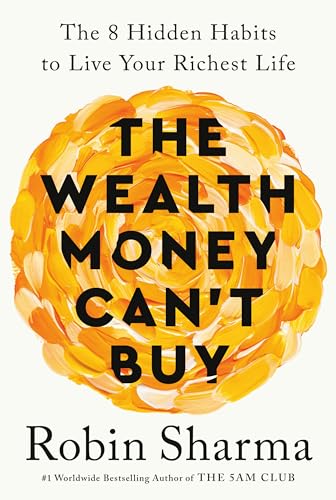
This groundbreaking book redefines the concept of wealth. It argues that real wealth is much more than just financial prosperity. It includes eight essential forms of wealth:
1. Growth
2. Wellness
3. Family
4. Craft
5. Community
6. Adventure
7. Service
8. Money
The book provides a life-altering system that helps readers lead their richest life before it’s too late. It offers a framework based on the eight hidden habits used by authentically rich people. The book is filled with practical tools and transformational tactics, offering a life-changing philosophy and methodology for enjoying a genuinely rich life.
Some valuable insights from the book include how to become a “perfect moment” creator, why your choice of mate is 90% of your joy, the power of “The 10,000 Dinners Question”, hidden habits of authentically wealthy people, and the brilliance of “going ghost” for a year.
Robin Sharma, the author, is a renowned personal growth expert who has mentored billionaires, superstar athletes, and heads of state. He teaches them The 8 Forms of Wealth Model with transformational results. Now, through this book, you too can learn it and create the lifetime of your highest dreams.
In essence, the book guides readers to stop chasing the wrong kinds of riches and set them on a transformative path towards a truly rich and abundant life filled with joy, peace, and freedom. It’s about understanding and adopting the habits of authentically wealthy people to live a richer life in all aspects.
Check out a free book summary here.
2. The 7 Habits of Highly Effective People by Stephen Covey
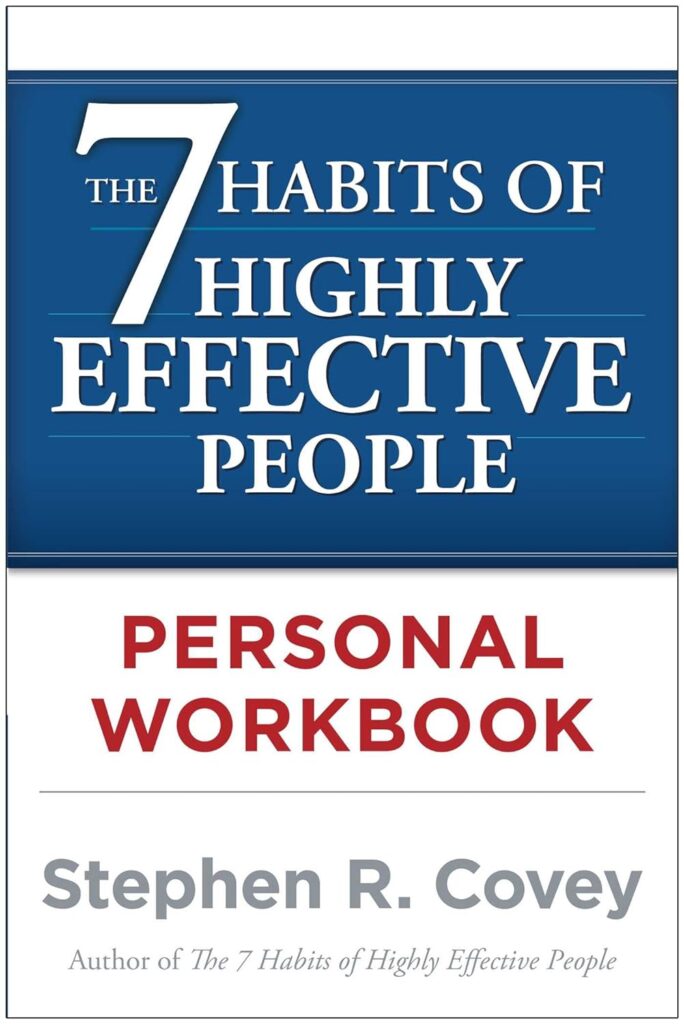
“The 7 Habits of Highly Effective People” by Stephen R. Covey is a highly influential book in the field of personal development. It presents a holistic approach to effectiveness in our personal and professional lives.
The book is based on Covey’s belief that the way we see the world is entirely based on our own perceptions. To change a given situation, we must change ourselves, and to change ourselves, we must be able to change our perceptions.
Covey introduces the concept of “Character Ethic” and “Personality Ethic”. Before the First World War, success was attributed to the Character Ethic, which included characteristics such as humility, fidelity, integrity, courage, and justice. However, after the war, there was a shift to the Personality Ethic, where success was attributed to personality, public image, behaviors, and skills. Covey argues that it’s your character that needs to be cultivated to achieve sustainable success, not your personality.
The seven habits outlined in the book are:
1. Be Proactive: Take initiative and responsibility for your life.
2. Begin with the End in Mind: Define your mission and goals in life.
3. Put First Things First: Prioritize your tasks based on importance, not urgency.
4. Think Win/Win: Seek mutually beneficial solutions or agreements in your relationships.
5. Seek First to Understand, Then to Be Understood: Listen to others first to understand their needs and viewpoints before expressing your own.
6. Synergize: Combine the strengths of people through teamwork to achieve goals that no one could do alone.
7. Sharpen the Saw: Balance and renew your resources, energy, and health to create a sustainable, long-term, effective lifestyle.
These habits move us progressively from dependence (relying on others) to independence (self-reliance) and finally to interdependence (mutual benefit). Covey argues that interdependence yields the greatest results, and to attain this level of interdependence, you must cultivate each of the seven habits.
In essence, the book provides a framework for personal effectiveness, offering tools and insights for achieving success in all aspects of life.
Check out a free book summary here.
3. Atomic Habits by James Clear
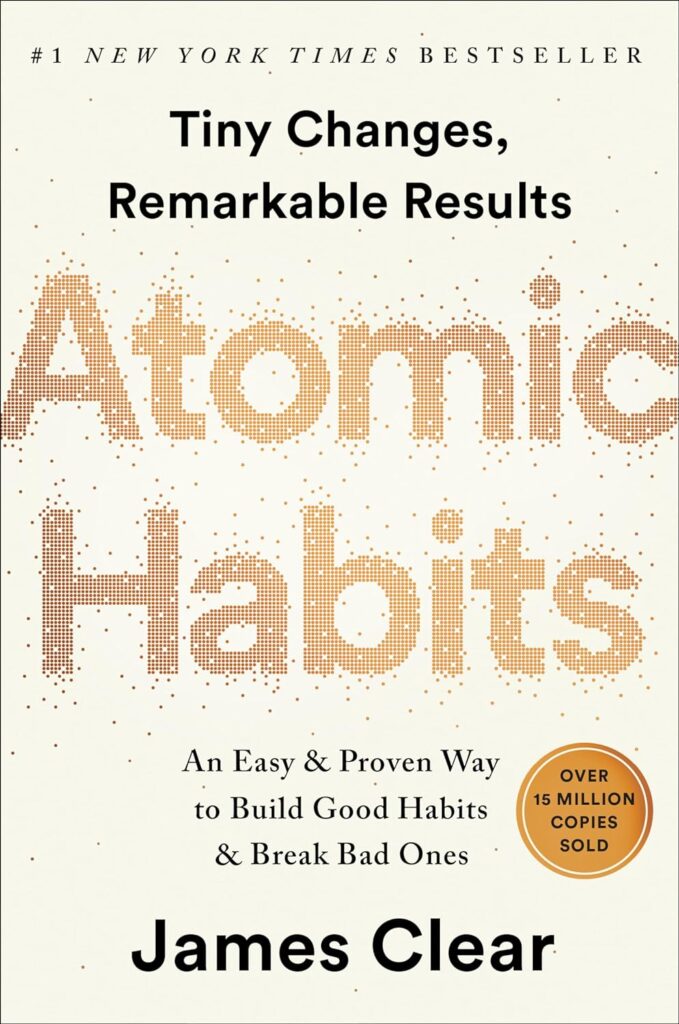
“Atomic Habits” by James Clear is a practical and comprehensive guide on how to create good habits and break bad ones.
The book introduces the concept of an “atomic habit”, a small and easy-to-do routine that, when practiced consistently, can lead to significant changes over time. The power of these habits comes from their potential to compound, leading to remarkable results in the long run.
Clear presents a framework called the Four Laws of Behavior Change, which are:
1. Make it obvious
2. Make it attractive
3. Make it easy
4. Make it satisfying
These laws provide a simple set of rules for creating good habits and breaking bad ones.
One of the key insights from the book is the idea of focusing on systems rather than goals. Goals are about the results you want to achieve, while systems are about the processes that lead to those results. Clear argues that if you’re having trouble changing your habits, the problem isn’t you, but rather your system.
Another important concept introduced in the book is the idea of identity-based habits. Clear suggests that to change your behavior for good, you need to start believing new things about yourself. Your current behaviors are a reflection of your current identity, and to change your habits, you need to change your identity.
In essence, “Atomic Habits” provides a proven system for making small, incremental changes that add up to big results. It’s about understanding the power of habits and how they can be harnessed to improve various aspects of our lives.
Check out a free book summary here.
4. Mindset: The New Psychology of Success by Carol Dweck
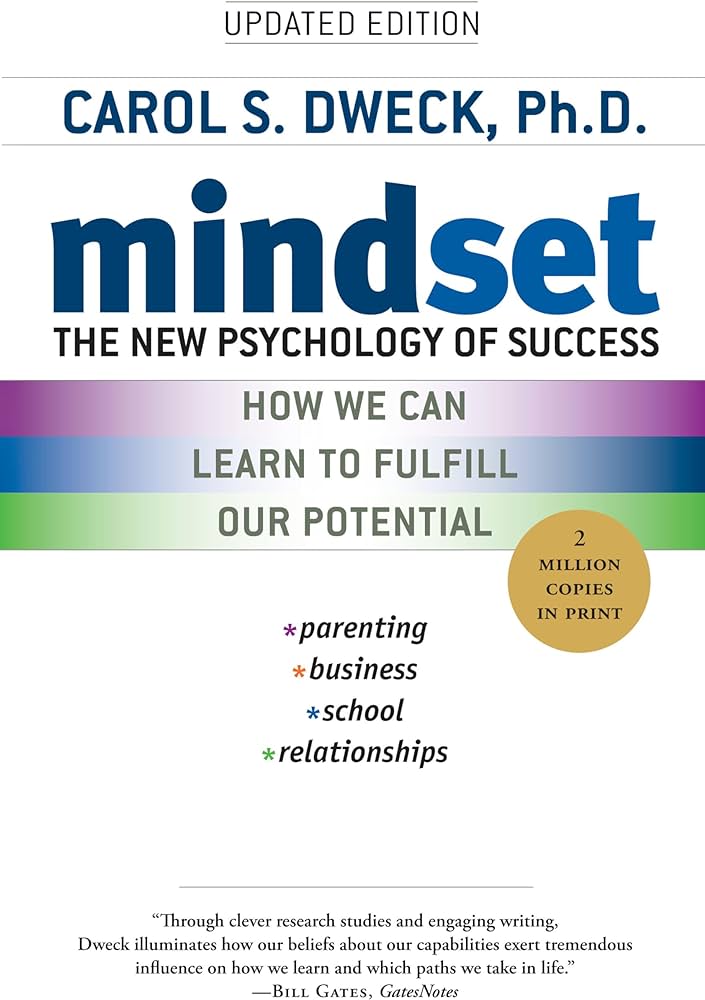
“Mindset: The New Psychology of Success” by Carol S. Dweck is a transformative book that explores the concept of ‘mindsets’ and how our beliefs about our abilities can impact our lives.
Dweck, a renowned psychologist, introduces two types of mindsets: the fixed mindset and the growth mindset.
People with a fixed mindset believe that their traits, including their intelligence and talents, are fixed and unchangeable. They often feel the need to prove themselves over and over, as they equate every situation and challenge as a direct measure of their worth. They believe that success is about being more gifted than others, leading to a fear of failure, avoidance of challenges, and a tendency to ignore useful negative feedback.
On the other hand, people with a growth mindset believe that their abilities and intelligence can be developed through effort, learning, and persistence. They view challenges as opportunities for growth and are more resilient in the face of obstacles. They understand that effort is a necessary means for mastery and learn from criticism. Success, to them, is about stretching themselves to learn something new and to continuously develop.
Throughout the book, Dweck uses examples from her research and other real-world situations to illustrate these mindsets. She covers several domains, including education, business, sports, and relationships, to demonstrate how adopting the right mindset can lead to success.
For instance, in the field of education, Dweck presents evidence that students who hold a growth mindset are more likely to excel academically than those with a fixed mindset. These students relish challenges, understand the value of effort, and view failure as an opportunity to learn.
In business, she presents cases of leaders with either mindset and how this affected their leadership style and the overall health of the organization. Leaders with a growth mindset tend to foster better teamwork, employee engagement, and more innovative cultures compared to those with a fixed mindset.
Towards the end of the book, Dweck offers practical advice on how readers can cultivate a growth mindset in themselves, their children, and their organizations. The book is a powerful tool for anyone looking to boost their potential and achieve their goals.
5. The Power of Now by Eckhart Tolle
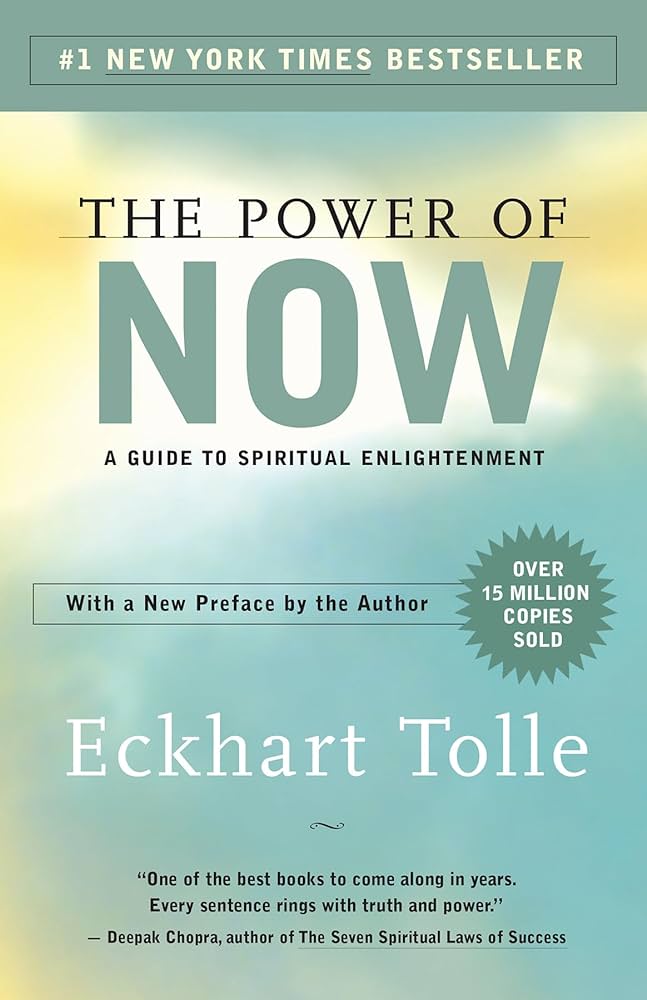
“The Power of Now: A Guide to Spiritual Enlightenment” by Eckhart Tolle is a transformative book that explores the concept of living in the present moment.
In this book, Tolle introduces the idea that the past and future are nothing more than illusions created by our minds. He argues that the only true reality is the present moment, often referred to as the “Now”. According to Tolle, we suffer when we let our minds dwell on the past or worry about the future, rather than focusing on the present.
Tolle suggests that psychological pain and suffering are the result of identification with our minds, which he describes as a kind of false self, or “ego”. By disassociating from the ego and living in the “Now”, one can achieve enlightenment and live in a state of peace and fulfillment.
The book is divided into several sections, each dealing with a different aspect of this concept. Tolle discusses topics such as the source of Chi, enlightened relationships, creative use of the mind, and the cycle of life. He provides practical advice and exercises to help readers learn to live in the present moment and find peace in the “Now”.
In essence, “The Power of Now” offers a thought-provoking and transformative guide to living a more mindful and fulfilling life by embracing the present moment.
6. Man’s Search for Meaning by Viktor Frankl
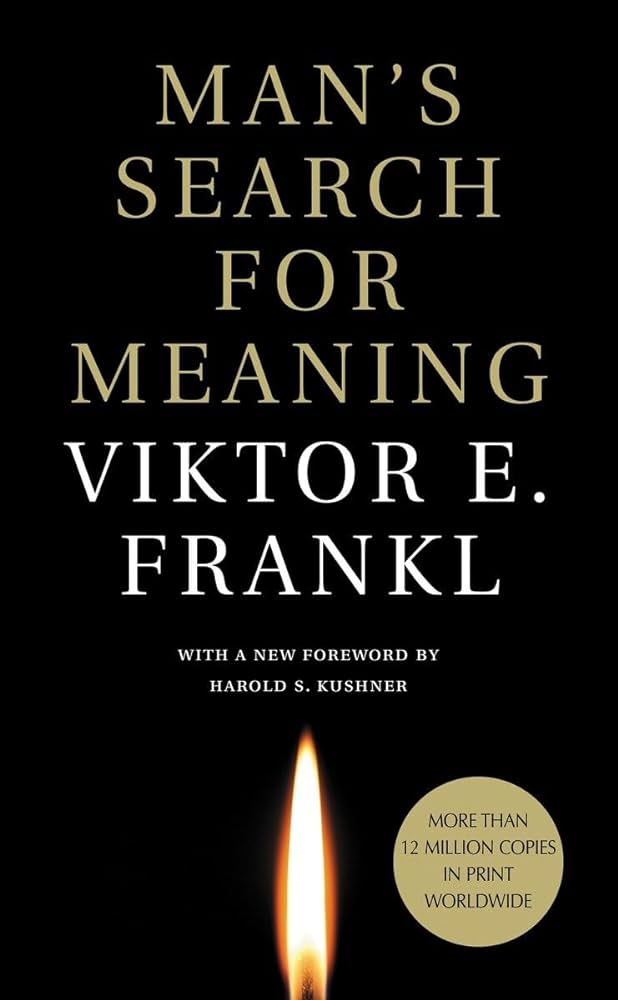
“Man’s Search for Meaning” by Viktor Frankl is a profound book that chronicles his experiences as a prisoner in Nazi concentration camps during World War II and introduces his psychotherapeutic method, which involved identifying a purpose in life.
Frankl, a psychiatrist and Holocaust survivor, presents the theory of logotherapy, which is centered on the belief that human nature is motivated by the search for a life purpose. He argues that even in the direst circumstances, life has meaning, and we have the freedom to find it through our actions, our experiences, and our attitudes towards suffering.
The book is divided into two parts. The first part is Frankl’s account of his experiences in the concentration camps. He describes the horrific conditions and the mental stages that the prisoners went through, including shock, apathy, and disillusionment. Despite the suffering, Frankl noticed that those who could find meaning or purpose in their existence were more likely to survive.
The second part of the book introduces logotherapy. According to Frankl, there are three ways to find meaning in life: by creating a work or doing a deed; by experiencing something or encountering someone; and by the attitude we take toward unavoidable suffering.
Frankl emphasizes that we cannot avoid suffering but we can choose how to cope with it, find meaning in it, and move forward with renewed purpose. He argues that our primary drive in life is not pleasure, as Freud had believed, but the discovery and pursuit of what we personally find meaningful.
In essence, “Man’s Search for Meaning” is a testament to the power of the human spirit. It’s about finding meaning in life, even in the most difficult circumstances, and it offers a compelling message of hope and resilience.
7. The Subtle Art of Not Giving a F*ck by Mark Manson
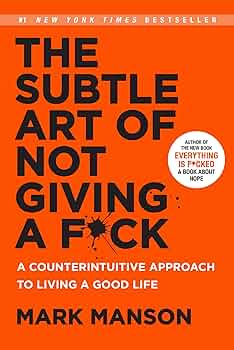
“The Subtle Art of Not Giving a F*ck” by Mark Manson is a self-help guide that challenges conventional wisdom about what it means to be happy and successful.
The book introduces the idea that life’s struggles give it meaning, and that typical self-help books offer meaningless positivity which is neither practical nor helpful. Manson argues that we are frustrated in life and feel like failures because we value and prioritize the wrong things, thanks in part to society’s emphasis on positive thinking, over-involved parents, and our susceptibility to superficial social media messages.
Manson presents the idea that not all things in life deserve to have energy and time spent on them. He suggests that we should focus on what truly matters to us and let go of everything else. This is the art of not giving a “f*ck”.
The book is divided into several chapters, each dealing with a different aspect of life, such as happiness, success, and death. Manson uses his own life experiences and anecdotes to illustrate his points, blending casual language with philosophical insights along the way.
In essence, “The Subtle Art of Not Giving a F*ck” provides a counterintuitive approach to living a good life. It’s about understanding the power of choosing what to care about and focusing on what truly matters.
You Might Also Like:
- 8 Books to Skyrocket Your Productivity (With Short Summaries)
- 7 Banned Books You Shouldn’t Read and Here’s Why
- 5 Books That Will Teach You High-Income Skills in 2024
- 13 Pieces of Advice From Adam Grant, From His New Best Seller Book
- Book Summary: “The Creative Act” by Rick Rubin
- Book Summary of “The Story of B,” by Daniel Quinn